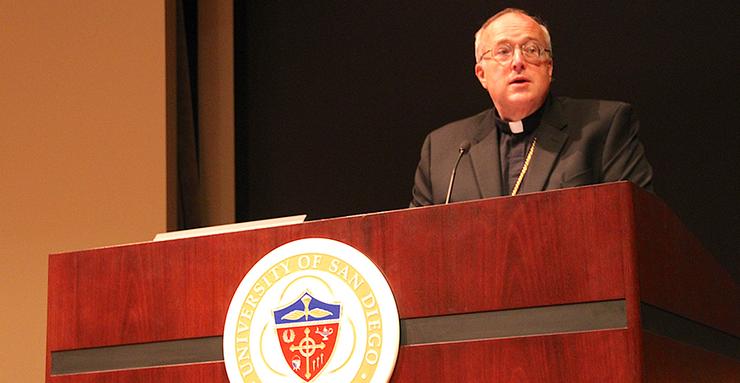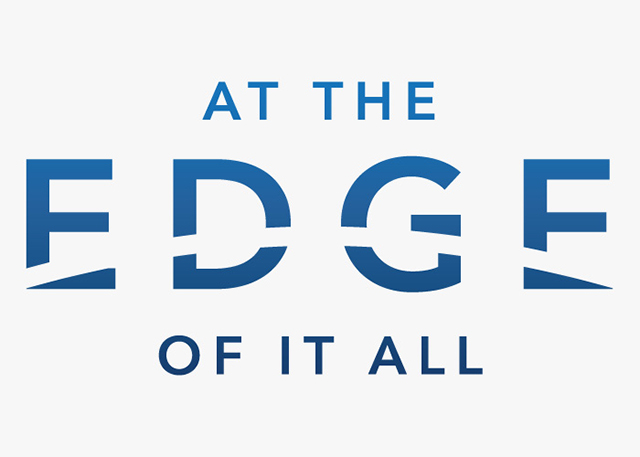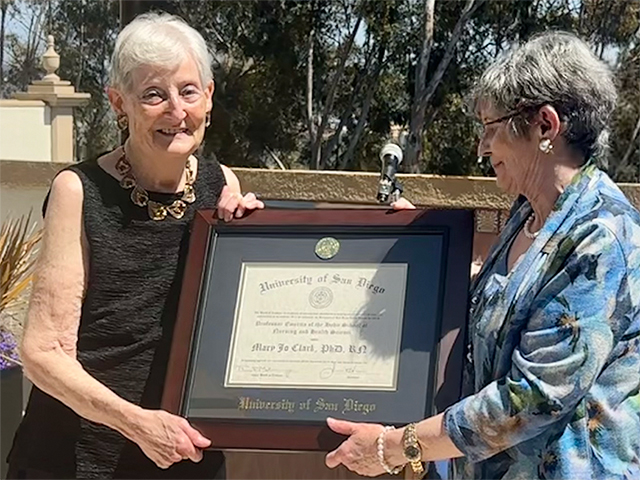Reclaim National Politics by Working for the Common Good
 Most Reverend Robert W. McElroy, Bishop of San Diego, spoke about Reclaiming our National Politics, citing the 2015 addresses by Pope Francis and making a plea for post-election healing.
Most Reverend Robert W. McElroy, Bishop of San Diego, spoke about Reclaiming our National Politics, citing the 2015 addresses by Pope Francis and making a plea for post-election healing.Most Reverend Robert W. McElroy, Bishop of the Catholic Diocese of San Diego, spoke publicly at the University of San Diego this week about the national political climate entering the November 8 election. He shared hopeful address points by Pope Francis during his U.S. visit last year and, in the wake of the final election results, Bishop McElroy proposed healing and a renewed dedication by all to work for the common good.
"Next Tuesday will be a test for our nation, a test about our ability to set aside the partisan rancor which divides us, and instead focus upon those central issues of the common good that confront us as a people," Bishop McElroy said. "This test is deepened by our increasing recognition that voting is also a profound judgement about the character of the candidates, not only about their willingness and ability to enact what they have promised, but also because political leadership in our nation helps to forge and deepen or to degrade and weaken the moral fabric of our society."
Pope Francis and the Pillars of Life
Pope Francis’ 2015 U.S. visit included addresses to Congress and to U.S. bishops that spoke of the need to take action on the five pillars of life — abortion, poverty, care for the earth, assisted suicide and immigration.
“Pope Francis outlined the major issues (to U.S. bishops) which constitute the political common good in the United States: “I encourage you, then, my brothers, to confront the challenging issues of our time. Ever present within them is life as gift and responsibility. The future freedom and dignity of our societies depends on how we face these challenges. The innocent victim of abortion, children who die of hunger or from bombings, immigrants who drown in the search for a better tomorrow, the elderly or the sick who are considered a burden, the victims of terrorism, war, violence and drug trafficking, the environment devastated by man’s predatory relationship with nature, … the family.”
But the political arena today seems to have shifted far from where it could be.
"The contrast between the beautiful vision of politics that Pope Francis presented while speaking to a joint session of Congress last year and political campaigns, which have unfolded in recent months, could not be more heartbreaking," McElroy said.
"Pope Francis compared the fundamental responsibilities of America's political leaders to the role of Moses, emphasizing that the first call of public service is to protect by means of the law the image and likeness fashioned by God on every human face."
“Recalling the martyrdom of Abraham Lincoln, Francis pointed to the foundational role that freedom plays in American society and politics, and noted that “building a future of freedom requires love of the common good and cooperation in a spirit of subsidiary and solidarity.” Citing the figure of Dorothy Day and her thirst for justice in the world, the Pope emphatically demanded that the economic genius of the American nation must be complemented by an enduring recognition that all economies must serve justice comprehensively, with special care for the poor. Finally, invoking the legacy of Martin Luther King, Pope Francis urged the nation’s political leaders to deepen America’s heritage as a land of dreams: “Dreams which lead to action, to participation, to commitment. Dreams which awaken what is deepest and truest in the life of a people.”
“In Francis’ message the core of the vocation of public service, and of all politics, is to promote the integral development of every human person and of society as a whole. It is a vocation which requires special and self-sacrificial concern for the poor, the unborn, the vulnerable and the marginalized. It is a commitment to pursue the common good over that of interest groups or parties or self-aggrandizement. It is a profoundly spiritual and moral undertaking.”
McElroy said the same spiritual and moral identity applies to voting for a candidate.
“Catholic teaching proclaims that voting is inherently an act of discipleship for the believer. But American political life increasingly frames voting choices in destructive categories that rob them of their spiritual character and content.” It is why, he continues, voting for the Catholic community in the U.S. today lies not in the embrace of any one issue or set of issues, but rather in a process of spiritual and moral conversion about the very nature of politics itself.”
A Call for Healing
The second part of Bishop McElroy’s talk offered an assessment of a post-election healing.
“I am convinced that the greatest challenge to our democratic tradition will take place after the election, in the first months of 2017. There is a profound sickness of the soul in American political life. This sickness tears at the fabric of our nation’s unity, undermining the core democratic consensus that is the foundation for our identity as Americans. For us to confront and eradicate this sickness of the soul, it is necessary that there be four substantial conversions within our political life which cannot be merely the work of elites, but an undertaking of the whole citizenry.”
The four are:
• We must turn from warfare to governance;
• We must turn from a culture of grievance to a culture of solidarity;
• We must turn from selective outrage to tending the wounds among us;
• We must cease destroying the institutions which are necessary for our political life.
He ended his talk with a simple request: “Let us ask our God to bring this most needed of blessings upon this nation which we all love so deeply.”
—Ryan T. Blystone



